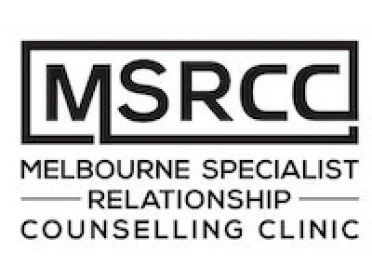
Low self-esteem or confidence can quietly affect how you experience life. You might second-guess yourself often, feel uncomfortable speaking up, or believe you’re not good enough, even when others say otherwise. These feelings are more common than people realise, and the good news is, they can be worked on and improved with time, care and the right support.
At MSRCC, we support people every day who want to feel more grounded in who they are. Whether you’re hoping to improve self-worth and self-esteem or simply want to feel more confident in your daily life, it starts with small, compassionate steps.
Understanding Self-Esteem, Self-Worth and Confidence
These three terms are often used together, but they each speak to slightly different things.
Self-esteem relates to how you see yourself and whether you believe you’re a person of value. Self-worth is the deeper sense that you are inherently deserving of love and respect, simply because you exist. Confidence, on the other hand, is about how much you trust in your ability to handle things or take action.
Sometimes, a person can be confident in one area of life, like work, but still struggle with low self-esteem overall. Understanding where you feel strongest and where you feel most unsure can help you know where to begin.
What Can Affect Self-Esteem and Confidence?
Low self-esteem often has roots in past experiences. These might include critical voices in childhood, social comparisons, trauma, or a long-term habit of perfectionism. Negative self-talk can become so familiar that you stop noticing how harsh it sounds.
Social media can also contribute. Constant comparisons to filtered lives and achievements can leave you feeling like you’re not measuring up, even when you are doing your best.
No matter where it began, improving self-esteem and confidence is always possible. The key is recognising those unhelpful beliefs and gently starting to challenge them.
How to Improve Self-Esteem
Self-esteem grows over time, and often starts with how you speak to yourself. When you notice a critical thought, take a moment to question it. Would you say the same thing to someone you love?
Start by identifying what you’re good at, even if it’s something small. Being kind to others, noticing details, keeping promises to yourself – all of these are valid strengths.
Celebrate your progress, not just the outcome. If you’re working towards a goal, acknowledging effort is just as important as ticking boxes. Be patient with yourself. Building a new way of thinking takes time and practice.
Ways to Improve Self-Worth
Improving your sense of self-worth often involves stepping away from needing approval from others and beginning to value your own voice.
One way to do this is through journaling. Write down what you appreciate about yourself each day, or reflect on a moment when you showed courage or care. These small reflections help shift your focus from what is missing to what is already within you.
Let go of people-pleasing when you can. Saying no kindly but firmly helps build a stronger sense of self. Spend time with people who support and respect you, rather than those who leave you feeling less than.
Improving Self-Esteem and Confidence in Daily Life
True confidence comes from action. This might look like speaking up when you normally stay quiet, trying something new even if you’re unsure, or gently pushing past avoidance when something feels uncomfortable but important.
Assertiveness is a useful skill here. Being able to express your thoughts and needs calmly builds self-respect and shows others how to treat you.
You might also focus on building healthy habits. These can be as simple as getting outside for fresh air, keeping a regular sleep schedule, or planning small things to look forward to. Feeling better in your body and your routine can naturally improve how you feel about yourself, too.
When to Seek Support
Sometimes, low self-esteem is tied to deeper patterns or long-standing beliefs that feel hard to shift alone. If these feelings are affecting your relationships, your work, or your well-being, talking to a therapist can help.
At MSRCC, our self-esteem enhancement support focuses on helping you build a healthier relationship with yourself. Whether through individual therapy or broader support, we offer a warm, professional space where you can be honest, heard and respected.
If you are ready to take that next step, you can contact us to explore what support might look like for you.
A Final Word
Improving self-esteem and confidence is not about becoming perfect or never doubting yourself again. It is about growing a deeper trust in who you are, learning to speak to yourself with kindness, and giving yourself permission to take up space in the world.
At MSRCC, we are here to support you wherever you are in that journey. You do not have to do this alone. It is okay to take it slowly, and it is okay to ask for help.
You are already worthy. This is about learning to believe it.


